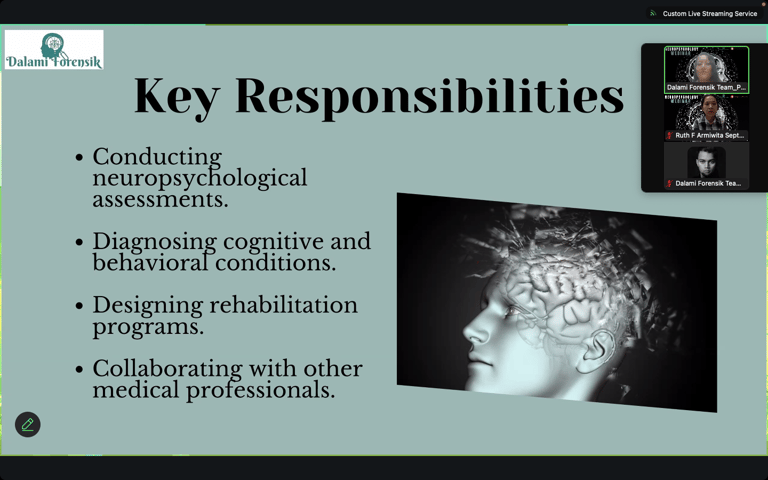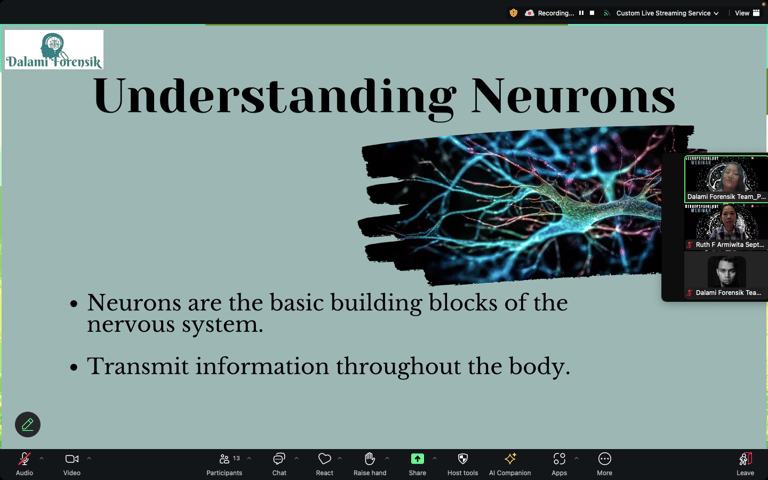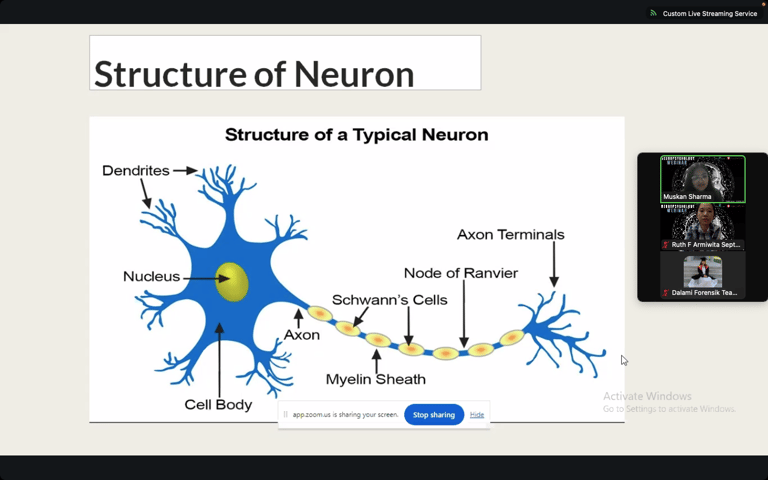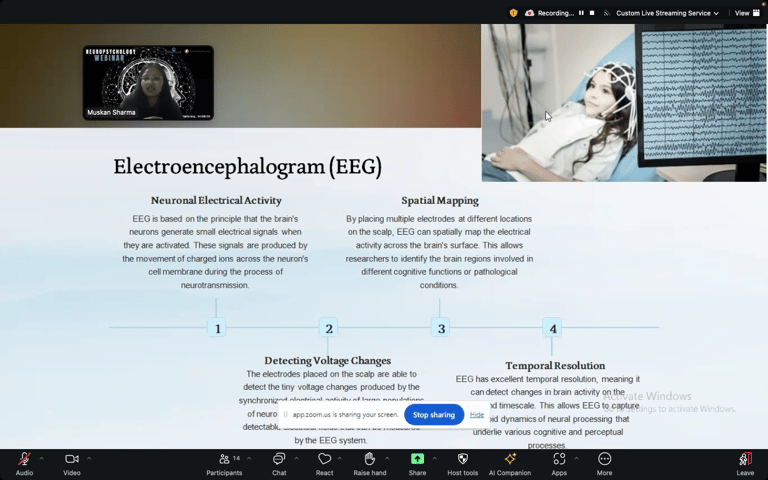Understanding the Brain: Highlights from Our Neuropsychology Webinar
PROGRAM ACTIVITIES RECAP ACROSS FIELDSNEUROPSIKOLOGI
We had the pleasure of hosting a webinar titled "Understanding the Brain: Neuropsychology 101," where we explored the fascinating world of neuropsychology. This event was designed to make the science of the brain accessible to everyone, with our expert speakers guiding us through how the brain functions and the role neuropsychologists play in mental health care.
Our first speaker, Miss Puja Maskey, began by introducing the audience to the fundamentals of neuropsychology, shedding light on the important differences between neuropsychologists and clinical psychologists. While both professions focus on mental health, neuropsychologists bring specialized knowledge about the brain’s structure and function to diagnose and treat cognitive disorders. Her talk helped participants appreciate how this expertise is crucial in understanding and managing conditions like dementia or brain injuries. Miss Puja also explained how neurons communicate using electrical impulses, giving us an easy-to-follow overview of this rapid-fire communication process. She walked us through the essential functions of these tiny nerve cells, showing how they influence everything from motor control to thought processes. Her breakdown of these complex interactions was not only informative but made brain science feel much more relatable.
One of the standout moments was when Miss Puja discussed the brain's structure. She expertly navigated through different regions of the brain, such as the frontal lobe and hippocampus, connecting their functions to everyday activities like decision-making and memory formation. Her insights made it easier to understand the direct relationship between brain anatomy and human behaviour.
Our second speaker, Miss Muskan Sharma, took a deep dive into the specifics of neurons. She explained their intricate structure and how they work in networks to support brain activity. Her presentation gave a clear picture of the crucial role neurons play in how we process information, form memories, and respond to our environment. She has also introduced the audience to key neuropsychological tools and instruments, which are essential for assessing brain function. She covered technologies like Electroencephalogram (EEG), functional Magnetic Resonance Imaging (fMRI), Positron Emission Tomography (PET), and Transcranial Magnetic Stimulation (TMS). These instruments are at the heart of modern brain research and clinical practice, allowing neuropsychologists to measure brain activity and identify disorders with precision.
We would like to extend our heartfelt thanks to both Miss Puja Maskey and Miss Muskan Sharma for sharing their invaluable knowledge with us. Their expertise made the complex world of neuropsychology accessible to all. Additionally, a huge thank you to all the participants who joined us for this enlightening session. Your engagement and curiosity made the webinar a success, and we look forward to welcoming you to our future events.










